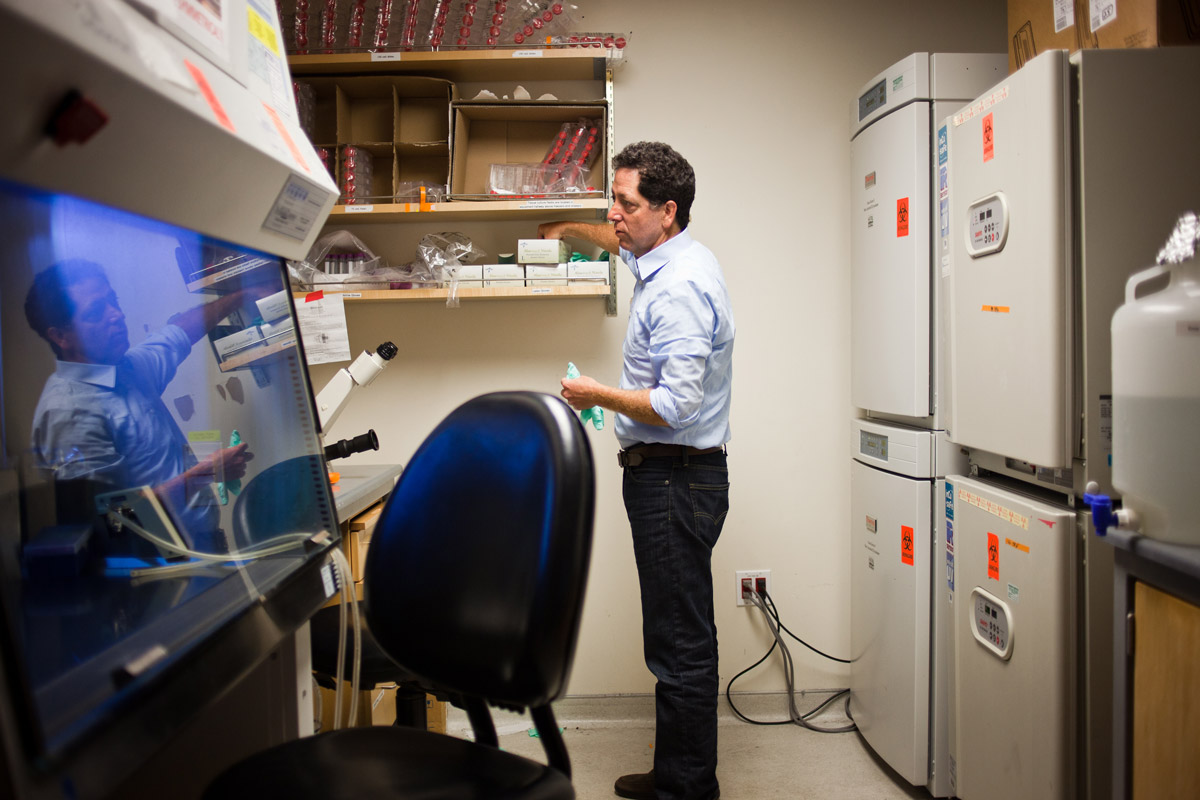Eight Reedies Helping Us All Get Through the Coronavirus Pandemic
Sharing the sweat, tears, and hard-won knowledge of Reedies grappling with the crisis.
As the COVID-19 pandemic spreads across the globe, the repercussions are being felt in every sphere of human activity. Patients are fighting for survival. Workers are losing their jobs. Communities are shutting down. The markets are in turmoil.
In this time of crisis, we decided to take a moment to share the sweat, tears, and hard-won knowledge of some of the Reedies who are grappling with the various dimensions of the problem—from treating patients, to figuring out how to stop the virus from replicating, to understanding the dynamics of the stock market. This is only a partial list, thrown together in a matter of hours. We know there are many Reed College stories we haven’t heard yet. Please send us more suggestions at reed.magazine@reed.edu
Defeating the Replicants
Hundreds of the world’s top scientists, including biochemist Kevan Shokat ’86, have dropped everything in a breakneck effort to develop drugs to combat the coronavirus. One surprising strategy is to search for existing pharmaceuticals, already approved for other uses, that target the key proteins the coronavirus needs to replicate. (The advantage being that we know these drugs are safe for use in humans.) In his lab at UC San Francisco, Shokat has been combing through a database of more than 20,000 FDA-approved compounds to see if any of them shut down any of the 400 proteins the virus relies on.
■ ■ ■
Fighting Misinformation
The pandemic has unleashed a slew of urgent questions for many groups, especially for new and expectant parents. Can it be transmitted from mother to baby in utero? Through breastmilk? How vulnerable are infants? OB-GYN Dr. Jane van Dis ’92 is a leading expert on coronavirus and pregnancy. As Medical Director at MavenClinic, a telemedicine platform for women and families, she’s fighting the tide of misinformation, sharing the latest information to help anxious patients and the public. Dr. Van Dis is also a founding member of Time’s Up Healthcare.
■ ■ ■
Decoding the Markets
Coronavirus has the markets spooked. Check out New York Times reporter Peter Goodman ’89 in this episode of The Daily on how the pandemic poses a threat to the world economy that has no precedent in recent times. Goodman has written several incisive articles about the economic impact of the pandemic, focusing in particular on why the traditional tools of central bankers don’t work well against the coronavirus.
■ ■ ■
The Cost of Social Distancing
What do you do when your business depends on hundreds of people getting together every night? Check out this emotional interview with Portland entrepreneur Kurt Huffman ’93. As the the urgency of implementing social distancing became more and more apparent, he faced the agonizing decision to shut the doors of his restaurants and bars, laying off hundreds of employees.
■ ■ ■
Bring On the Robots
Strange as it may sound, one of the biggest bottlenecks in biology is pipetting—the deceptively simple act of transferring small quantities of liquid from one container to another. Easy on a small scale, a massive headache when you’re gazing at a forest of test tubes. Research tech Jethary Rader ’18 works at biotech startup Opentrons, which makes pipette robots capable of processing thousands of samples per day. The company is seeking Emergency Use Authorization from the FDA so that its system can be deployed in the diagnosis of COVID-19. Rader joined the company last year and wrote their Reed senior thesis on pathogenicity of enteropathogenic Escherichia coli.
■ ■ ■
Hands Across the Water
The pandemic has prompted governments to close borders and sparked isolationist sentiment. Reed College Prof. Kim Clausing [economics] is convinced that international trade is now more important than ever. Only by working together, she argues, can the world’s economies produce the vital goods and services such as medicines and testing kits that will help us get through the crisis. Tariff barriers, such as the one the Trump Administration imposed on medical equipment manufactured overseas, only serve to delay economic recovery.
■ ■ ■
Ahead of the Curve
Microsoft was quick to grasp the true significance of the first coronavirus cases in the United States. Senior Microsoft executive (and Reed College trustee) Kurt DelBene led the company’s effort to implement social distancing. On March 4, Microsoft insisted that its 40,000 Seattle employees work from home, becoming one of the first major employers to do so. DelBene has some experience with managing crisis: in 2013 he was tapped by President Barack Obama to fix the messy rollout of HealthCare.gov. His wife, Congresswoman Suzan DelBene ’82, is also leading the charge on the nation’s response to the pandemic, calling for an expansion of the child tax credit as the nation grapples with the economic damage inflicted by the disease.
■ ■ ■
Isolate the Critical Link
One reason the coronavirus makes people so sick is that the immune system sometimes overreacts, triggering inflammation that actually makes the disease worse. Computational biologist Jason McDermott ’93 co-authored a key paper on the SARS-Coronavirus, a precursor to Covid-19, using a powerful tool known as network topology to identify critical genes involved in the immune response to the disease. While these particular results may not apply to Covid-19, they suggest that network topology could help scientists home in on treatments for the disease. McDermott works at the Pacific Northwest National Laboratory in Richland, Washington.
Tags: Alumni, Life Beyond Reed, Research, Covid-19
